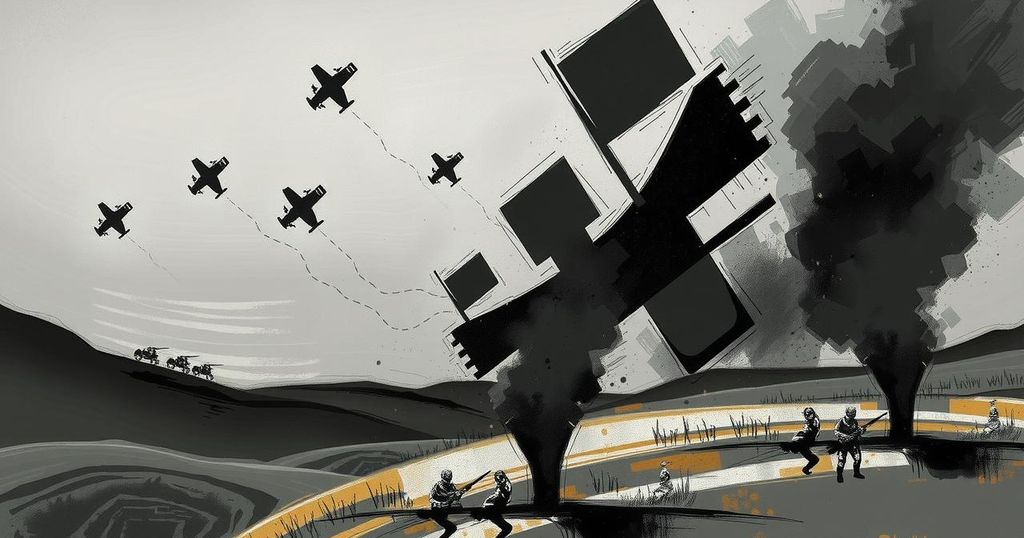U.S. Airstrikes Target Houthi Forces Amid Growing Tensions with Iran

U.S. airstrikes have targeted and destroyed over 30 Houthi military sites, signaling a renewed commitment to protect U.S. interests against Iranian-backed aggression. While casualties were reported, Pentagon officials emphasized the strikes were not aimed at regime change. President Trump declared Iran responsible for any Houthi retaliation, heightening tensions in the Middle East as U.S. military presence intensifies amid concerns regarding Iran’s nuclear pursuits.
Recent U.S. airstrikes successfully targeted Houthi military capabilities, destroying over 30 sites, including missile, drone, and air defense systems. Joint Staff Director for Operations Lt. Gen. Alexus Grynkewich reported that numerous military casualties were recorded with no credible civilian casualties, stressing that the objective was to diminish the Houthi threat to U.S. interests.
Yemen’s Houthi rebels claimed significant civilian casualties, asserting that 53 individuals, including children, perished during the strikes, which began on Saturday. Pentagon spokesperson Sean Parnell emphasized the strikes were a warning that any aggressions against American troops would have serious repercussions, clarifying that the operation was not intended for regime change but to prioritize U.S. interests.
President Donald Trump declared that Iran would be held accountable for any retaliatory actions by the Houthis, suggesting that future attacks could provoke considerable retaliation. He articulated this sentiment on Truth Social, emphasizing that Iran exerts control over the Houthis, supplying them with resources and leadership.
In response to escalating tensions, the Houthis announced plans to disrupt shipping in the Red Sea to leverage political pressure on Israel. Despite attempted diplomatic overtures toward Iran, Tehran’s refusal to engage sparked concerns about a potential resurgence of hostilities and Trump’s commitment to continuing strikes until the Houthi threat was neutralized.
U.S. Navy vessels have encountered direct confrontations with Houthi forces, resulting in a significant number of aggressive engagements over the past eighteen months. The ongoing military operations aim to secure a crucial trade route while analysts question the effectiveness of such engagements against a resilient Houthi force.
Statements from officials indicate a marked change in strategy from previous administrations, with renewed emphasis on direct military action against Houthi forces to alleviate threats to maritime safety. However, some experts argue against U.S. involvement in what they perceive as conflicts that do not directly jeopardize American interests.
Critics assert that although military actions may be necessary, comprehensive solutions addressing underlying ideological conflicts are imperative to achieve lasting peace. They contend that reliance on kinetic responses alone will not dismantle deeply-rooted ideologies. At the same time, concerns persist regarding Iran’s nuclear ambitions as uranium enrichment nears potentially dangerous levels.
These developments indicate a determined stance from the U.S. to protect its interests while navigating complex geopolitical dynamics involving regional actors like Iran and the Houthis, which continue to pose security challenges in the Middle East and beyond.
The recent U.S. airstrikes against Houthi military installations mark a significant escalation in military engagement following years of limited responses to Houthi attacks. While the strikes aim to protect American interests and deter further aggression, questions regarding their long-term effectiveness and the underlying complexities of regional dynamics remain. Furthermore, with Iran’s nuclear activities escalating, the U.S. faces critical challenges in balancing military responses with diplomatic solutions to foster stability in the region.
Original Source: www.foxnews.com







